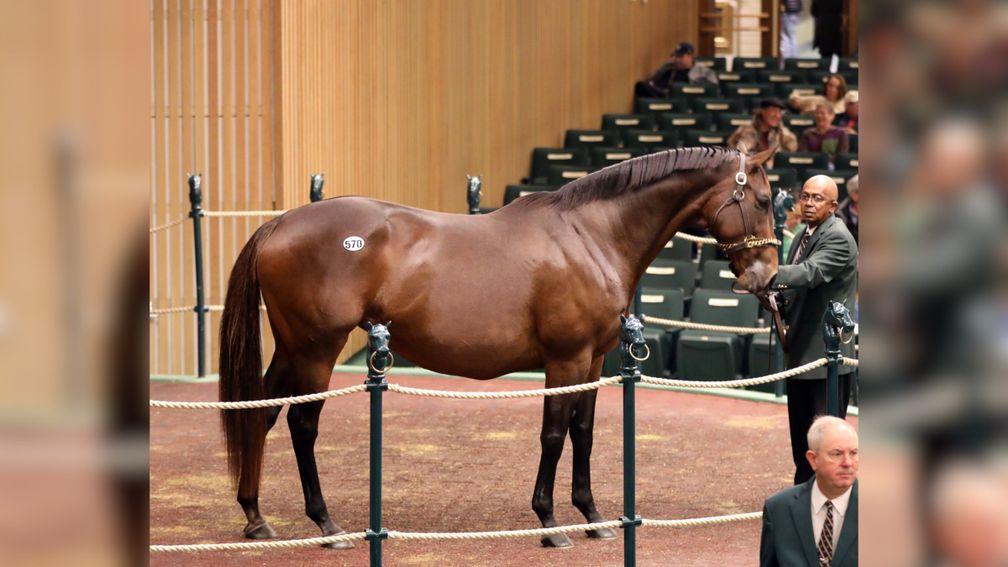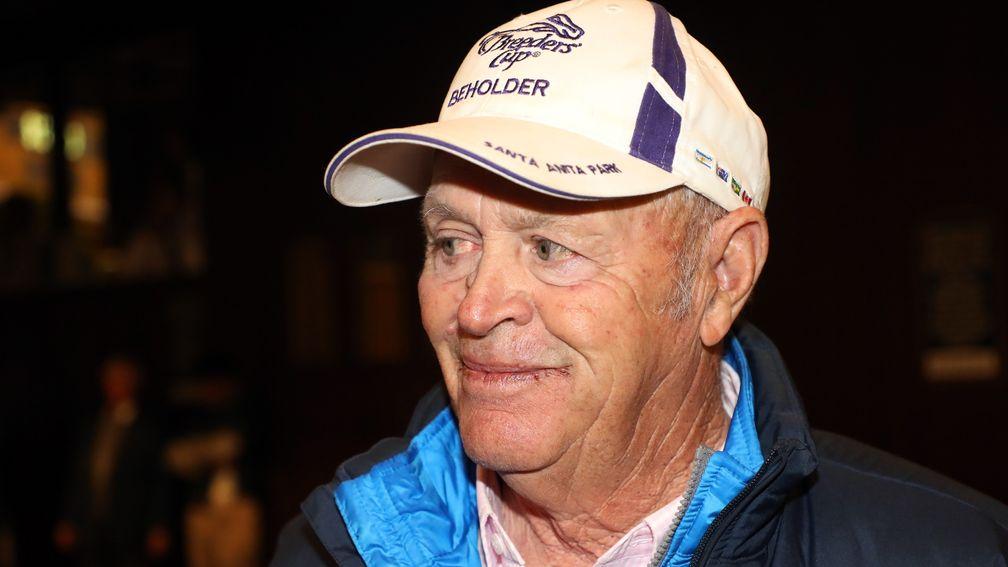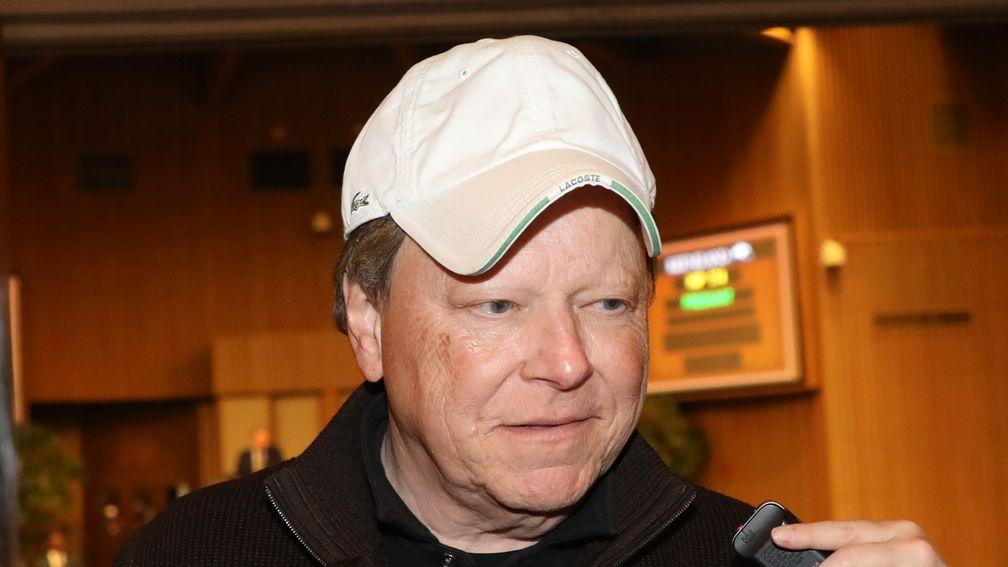Yearling market ripple effect continues to fuel strong trade at Keeneland
Record-breaking breeders Clarkland Farm reinvest proceeds from $8.2m filly

Strong demand for high-quality American yearlings this season is continuing to play a significant role in the bloodstock marketplace as breeders flush with cash are joining buyers wary of facing higher prices next year in eagerly acquiring attractive broodmares and weanlings at the Keeneland November Sale.
After Thursday’s second of 12 sessions slated for the world’s largest auction of breeding stock, Keeneland reported increases in all major categories compared to the first two sessions of the 2018 November sale, with 401 horses changing hands for total sales of $107,704,500 (£84,090,290/€97,538,810), up nearly ten per cent.
The top-priced horses of the session told the story. Fred and Nancy Mitchell’s Clarkland Farm, which sold the record $8.2 million yearling filly by American Pharoah at the Keeneland September Sale, has reinvested part of those proceeds in broodmares and paid a session-topping $650,000 (£507,395/€588,650) for seven-year-old multiple Grade 1-placed Conquest Eclipse.
View full Keeneland November Sale results
“She was a gorgeous mare and she was in foal to Justify - and I really wanted a Justify,” Fred Mitchell said of Conquest Eclipse, a daughter of Malibu Moon out of a half-sister to the dam of Grade 1 winner and sire Colonel John.

“Just an opportunity to acquire a quality colt by a quality stallion. He’ll go into our racing programme - just trying to circumnavigate the yearling market a little bit, which seems to be pretty strong for these types of colts,” Wallace said of the bay produced by the Birdstone mare Princess Aspen, a half-sister to Grade 1 winner Zazu and Grade 2 winner and sire Flashback.
Clarkland and China Horse Club were far from alone in their approaches to market dynamics.
Another family operation that enjoyed a highly productive September Sale, Hinkle Farms, returned to action by purchasing three mares for a combined $1.185m in the first two sessions, topped by $575,000 Thursday acquisition Ladies’ Privilege, a stakes-winning daughter of Harlan’s Holiday in foal to More Than Ready.
Hinkle had sold 16 yearlings for a total of $6.482m in September.
Meanwhile, other major weanling buyers included Larry Best of OXO Equine, whose acquisitive activity is touching every segment of the market. Best, who paid $5m for Breeders’ Cup Distaff winner Blue Prize at Tuesday’s Fasig-Tipton sale, has bought four weanlings through the opening Keeneland sessions for a total of $1.985m.

“There were too many cases when quality buyers couldn’t buy at the yearling sales. And so they’re coming here, looking for talent, doing their vetting, looking at bloodlines, looking at sires,” he said. “The yearling market has gotten so expensive, you could argue that you have more shots on goal, at probably 60 per cent of the price (with weanlings). Over a long period of time, hopefully it works out.
“With a quality weanling that stands out, instead of getting $200,000 or $300,000 like they would have last year or the year before, (sellers are) getting $600,000 or $700,000, and because of that price point, next year’s weanling market will be even stronger.
“That’s why I’m going into breeding,” Best added, laughing. His other Keeneland weanling purchases include a $400,000 full-brother to Medaglia D’Oro’s champion daughter Songbird.
With 33 more horses sold in the first two Keeneland sessions of 2019 compared to last year, total sales have risen while the average price of $268,590 (£209,660/€243,275) and median of $185,000 (£144,440/€167,565) both are up slightly at just less than one per cent and three per cent respectively. The overall rate of horses listed as not sold (RNA) has stayed about the same at just over 22 per cent.
For the second session, which opened Book 2, Keeneland reported numbers very similar to those recorded in 2018, with 235 horses sold for $36.205m, down less than half a per cent.
“I think Book 2 opened very well, very comparable to last year’s sale. I thought the mares that were young and well covered sold exceptionally well. The foals of course have strong criteria they have to follow; those that make the criteria sold exceptionally well,” said Geoffrey Russell, Keeneland director of sales operations.
“We’ve seen a trend over the last couple of years of some end-users coming in to the weanling market. For the last three years, the yearling market has been exceptionally good, so I think it gives confidence to pinhookers, as well, to participate at a certain level of the market, at the top end of the market. Again, weanlings, yearlings, it makes no difference - they have to vet. If they vet, the sky’s the limit. If they don’t vet, well, they don’t,” Russell observed.
More from Keeneland:
Brandi takes charge as $3.2 million broodmare tops November bill
Published on 8 November 2019inNews
Last updated 10:27, 8 November 2019
- Well-related winners and placed performers feature at the Tattersalls Cheltenham April Sale
- ‘It’s been constant pressure for the last six months’ - up-and-coming consignors out to make dreams come true at the Doncaster Breeze-Up Sale
- Three new board members for the National Stud
- Hide The Evidence a first winner for Sands Of Mali with victory at Bordeaux Le Bouscat
- Showcasing filly from a deep Moyglare family set for Gowran Park debut on Tuesday
- Well-related winners and placed performers feature at the Tattersalls Cheltenham April Sale
- ‘It’s been constant pressure for the last six months’ - up-and-coming consignors out to make dreams come true at the Doncaster Breeze-Up Sale
- Three new board members for the National Stud
- Hide The Evidence a first winner for Sands Of Mali with victory at Bordeaux Le Bouscat
- Showcasing filly from a deep Moyglare family set for Gowran Park debut on Tuesday